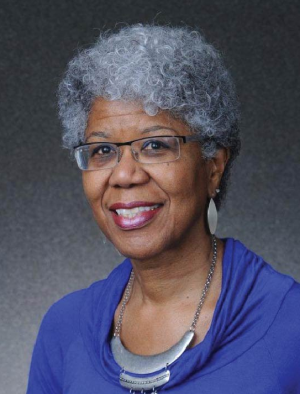CU Faculty Voices: Now, more than ever, we need to focus on inclusive teaching
Editor’s note: This is one in a series of commentaries by CU faculty, presented by the Faculty Council Communications Committee and CU Connections. Learn more here and submit your own column pitch.
The COVID-19 pandemic and its devastating, disparate impacts, combined with heightened awareness of systemic racism, has illuminated persistent, pernicious inequities in the United States. Areas of inequity include education, employment/working conditions, access to health care, income, socioeconomic status, housing, access to technology, and technology literacy, among others. Implications for higher education became clear as universities scrambled initially to respond to the pandemic, and soon thereafter to urgent calls to combat racism.
These developments differentially affected students, staff and faculty. Some students experienced family financial crises, loss of employment or an urgent need to find work, loss of social networks or limited access to them, mental health problems, food insecurity, and loss of loved ones to COVID. These types of challenges were compounded for students who have always faced racism, xenophobia, misogyny, homophobia, ableism, classism and so forth.
Online environments exacerbated these dynamics for students who have limited or no physical access to technology. Psychological access – readiness, motivation, level of comfort, and experiences with technology – also matters. Variance in accessibility affects students’ digital literacy, “the ability to use information and communication technologies to find, evaluate, create and communicate information, requiring both cognitive and technical skills.”[i]
These conditions reinforced the reality that higher education has not come close to achieving its potential to help develop a pluralistic, inclusive and equitable world.
As society-at-large continues to respond to the pandemic and calls for anti-racism, the University of Colorado should make cultivating inclusive teaching one its highest priorities. Focusing on inclusive teaching will help faculty to learn more about students’ experiences and concerns, and to ensure all students’ success within higher education.
Inclusive teaching involves “developing a foundation of respect and connectedness through established routines, mutually agreed norms, and equitable treatment of all learners.”[ii] Inclusive educators engage in processes designed to help everyone – members of non-dominant and dominant groups – feel valued and respected for their worldviews, to have a strong sense of belonging to an engaged, productive learning community. Thus, inclusive teaching prepares all students to be global citizens who appreciate difference and honor diverse ways of thinking and being.
I recently facilitated a workshop on equity, teaching and learning for STEM faculty. An attendee expressed surprise at learning that some students did not have access to technology. He lamented that he had not thought about that before. Cultivating inclusive teaching can help faculty anticipate and address aspects of students’ lives that they may not have considered.
Some faculty may not be aware that they can benefit from learning about inclusive teaching. One of our colleagues told me that she thought her classroom was always inclusive because she personally valued every student and what they might contribute. After taking advantage of professional development opportunities on her campus, she learned perspectives and practices that helped her to communicate to students that she truly valued their various viewpoints as well as their different ways of learning, different levels of access to, or comfort with technology, and so forth. Her experience underscores the point that cultivating inclusive teaching can be valuable to all faculty, regardless of their attitudes toward students and teaching. In addition, inclusive teaching is relevant to all academic disciplines.
To be inclusive in any learning context requires an awareness of multiple forms of power and privilege that shape teaching and learning processes. Therefore, inclusive educators monitor how they interact with students (and how students interact with one another) based on implicit and explicit biases about students’ and faculty members’ social identities (e.g., gender, race, ethnicity, sexual orientation, ability, age, social class, nationality, religion, political affiliation, etc.). They are self-reflexive about the role of power and privilege in how they “manage” their classrooms to be supportive of all learners. They develop and implement culturally responsive curricula and teaching practices. These are just a few characteristics of inclusive teaching.
Some faculty have always been committed to cultivating inclusive teaching. If you are one of them, I commend you for your efforts, and I hope that you will continue to hone your capacities.
Recommendations to faculty
Deepen your commitment to become a more inclusive educator. Honor equity and inclusion as priorities for teaching and learning. Take full advantage of resources on your campus. Work within your sphere of influence to form and strengthen alliances with other faculty members. Identify and apply best practices. Collaborate for consistency within your unit. Ensure that faculty at all levels have access to professional development resources. Seek technical resources to enhance inclusive online teaching.
In conclusion, although I have written this article for individual faculty, my call to action is for strategic, systemic and sustainable efforts from CU leadership on all campuses and at the system level. A committed focus on inclusive teaching can help CU to achieve its vision to “expand student success, diversity and the economic foundation of the State of Colorado”[iii] – and beyond.
Brenda J. Allen, Ph.D., is Professor Emerita and former Vice Chancellor for Diversity and Inclusion (Chief Diversity Officer) at CU Denver | CU Anschutz Medical Campus. During almost 30 years in the CU system, she developed a track record for scholarship, teaching, service, mentorship and training related to organizational communication, social identity and leadership, with an emphasis on higher education.
[i] https://www.edweek.org/ew/articles/2016/11/09/what-is-digital-literacy.html
[ii] Culturally Responsive Teaching in the Online Classroom https://elearnmag.acm.org/archive.cfm?aid=3274756
[iii] https://www.cu.edu/mission-university-colorado-guiding-principles-and-vision-statement



